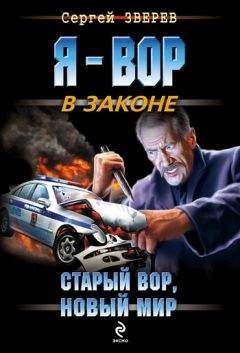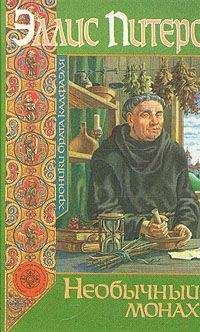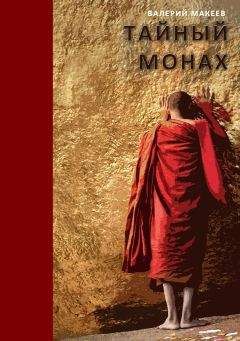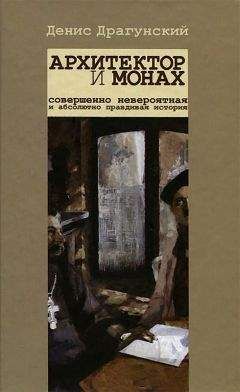Энтони Хоуп - Английский язык с Энтони Хоупом. Узник Зенды / Anthony Hope. The Prisoner Of Zenda
I have little fancy for the whirl of society, and none for the jostle of politics. Lady Burlesdon utterly despairs of me; my neighbours think me an indolent, dreamy, unsociable fellow. Yet I am a young man; and sometimes I have a fancy – the superstitious would call it a presentiment – that my part in life is not yet altogether played; that, somehow and some day, I shall mix again in great affairs, I shall again spin policies in a busy brain, match my wits against my enemies’, brace my muscles to fight a good fight and strike stout blows. Such is the tissue of my thoughts as, with gun or rod in hand, I wander through the woods or by the side of the stream. Whether the fancy will be fulfilled, I cannot tell – still less whether the scene that, led by memory, I lay for my new exploits will be the true one – for I love to see myself once again in the crowded streets of Strelsau, or beneath the frowning keep of the Castle of Zenda.
Thus led, my broodings leave the future, and turn back on the past (направленные таким образом, мои размышления = думы покидают будущее и поворачиваются назад к прошлому). Shapes rise before me in long array (видения встают передо мною длинной чередой; shape – форма; призрак; array – строй, построение) – the wild first revel with the King, the rush with my brave tea-table (та первая бурная пирушка с королем, прорыв с моим доблестным чайным столиком), the night in the moat, the pursuit in the forest (ночь во рву, погоня в лесу): my friends and my foes, the people who learnt to love and honour me (мои друзья и мои враги, люди, которые научились любить и почитать меня), the desperate men who tried to kill me (головорезы: «отчаянные люди», которые пытались убить меня). And, from amidst these last, comes one who alone of all of them yet moves on earth (и среди этих последних приходит тот, кто единственный из всех них все еще ходит по земле), though where I know not (хотя я не знаю где), yet plans (as I do not doubt) wickedness (/и/ все еще затевает (в чем я не сомневаюсь) какие-то злодейства), yet turns women’s hearts to softness and men’s to fear and hate (все еще заставляет женские сердца таять, а мужские – бояться и ненавидеть; to turn – поворачивать; превращать, изменять; softness – мягкость). Where is young Rupert of Hentzau (где /сейчас/ Руперт из Хенцо) – the boy who came so nigh to beating me (парень, который чуть не победил меня; nigh – близко, рядом; почти; to beat – бить, ударять; победить, превзойти)? When his name comes into my head (когда мне в голову приходит его имя), I feel my hand grip and the blood move quicker through my veins (я чувствую, как мои кулаки сжимаются, и кровь в моих венах бежит быстрее): and the hint of Fate – the presentiment – seems to grow stronger and more definite (и намек Судьбы – предчувствие – кажется, становится сильнее и определеннее), and to whisper insistently in my ear (и настойчиво шепчет мне в ухо) that I have yet a hand to play with young Rupert (что мне еще предстоит сыграть партию с юным Рупертом); therefore I exercise myself in arms, and seek to put off the day (поэтому я упражняюсь /во владении/ оружием и пытаюсь отсрочить тот день; to seek to do smth. – пытаться сделать что-л.) when the vigour of youth must leave me (когда энергия молодости должна оставить меня).
Thus led, my broodings leave the future, and turn back on the past. Shapes rise before me in long array – the wild first revel with the King, the rush with my brave tea-table, the night in the moat, the pursuit in the forest: my friends and my foes, the people who learnt to love and honour me, the desperate men who tried to kill me. And, from amidst these last, comes one who alone of all of them yet moves on earth, though where I know not, yet plans (as I do not doubt) wickedness, yet turns women’s hearts to softness and men’s to fear and hate. Where is young Rupert of Hentzau – the boy who came so nigh to beating me? When his name comes into my head, I feel my hand grip and the blood move quicker through my veins: and the hint of Fate – the presentiment – seems to grow stronger and more definite, and to whisper insistently in my ear that I have yet a hand to play with young Rupert; therefore I exercise myself in arms, and seek to put off the day when the vigour of youth must leave me.
One break comes every year in my quiet life (один раз в год в моей спокойной жизни происходит перемена; break – пролом, брешь; внезапная перемена). Then I go to Dresden, and there I am met (тогда я еду в Дрезден, и там меня встречает) by my dear friend and companion, Fritz von Tarlenheim (мой дорогой друг и товарищ Фриц фон Тарленхайм). Last time, his pretty wife Helga came (в последний раз приезжала его хорошенькая жена Хельга), and a lusty crowing baby with her (а с нею – здоровый агукающий малыш; to crow – кукарекать; издавать радостные звуки /о младенце/). And for a week Fritz and I are together (неделю мы с Фрицем проводим вместе), and I hear all of what falls out in Strelsau (и я слушаю о том, что происходит в Стрелсо; to fall out – выпадать; случаться); and in the evenings, as we walk and smoke together (а по вечерам, когда вместе гуляем и курим), we talk of Sapt, and of the King, and often of young Rupert (мы беседуем о Сэпте, о короле и частенько о молодом Руперте); and, as the hours grow small, at last we speak of Flavia (а когда уже далеко за полночь, мы говорим о Флавии; small hours – предрассветные часы). For every year Fritz carries with him to Dresden a little box (ибо каждый год Фриц привозит с собой в Дрезден небольшую коробочку); in it lies a red rose, and round the stalk of the rose (в ней лежит красная роза, а вокруг черенка розы) is a slip of paper with the words written: “Rudolf – Flavia – always (обернута узкая полоска бумаги с написанными на ней словами: «Рудольф – Флавия – навсегда»).” And the like I send back by him (и такую же /розу/ я посылаю с ним назад). That message, and the wearing of the rings (это послание и кольца, которыми мы обменялись: «и ношение колец»), are all that now bind me and the Queen of Ruritania (вот все, что связывает меня теперь с королевой Руритании). Far – nobler, as I hold her, for the act – she has followed (еще более благородная, как я считаю ее за этот поступок, она последовала туда: «так далеко»; to hold – держать; полагать, считать) where her duty to her country and her House led her (куда вел ее долг перед своей страной и своим родом; to lead), and is the wife of the King (и /теперь/, будучи женой короля), uniting his subjects to him by the love they bear to her (объединяет с ним его подданных любовью, которую они испытывают к ней; to bear – нести, носить; питать, таить), giving peace and quiet days to thousands by her self-sacrifice (даря мир и покой тысячам /людей/ за счет своего самопожертвования).
One break comes every year in my quiet life. Then I go to Dresden, and there I am met by my dear friend and companion, Fritz von Tarlenheim. Last time, his pretty wife Helga came, and a lusty crowing baby with her. And for a week Fritz and I are together, and I hear all of what falls out in Strelsau; and in the evenings, as we walk and smoke together, we talk of Sapt, and of the King, and often of young Rupert; and, as the hours grow small, at last we speak of Flavia. For every year Fritz carries with him to Dresden a little box; in it lies a red rose, and round the stalk of the rose is a slip of paper with the words written: “Rudolf – Flavia – always.” And the like I send back by him. That message, and the wearing of the rings, are all that now bind me and the Queen of Ruritania. Far – nobler, as I hold her, for the act – she has followed where her duty to her country and her House led her, and is the wife of the King, uniting his subjects to him by the love they bear to her, giving peace and quiet days to thousands by her self-sacrifice.
There are moments when I dare not think of it (бывают такие минуты, когда я не смею думать об этом), but there are others when I rise in spirit to where she ever dwells (но есть и другие, когда я мысленно поднимаюсь туда, где она навсегда осталась; spirit – дух; духовное начало; душа; in spirit – в душе, мысленно; to dwell – обитать, жить; пребывать); then I can thank God that I love the noblest lady in the world (тогда я могу благодарить Господа, что люблю самую благородную даму в мире), the most gracious and beautiful (самую добрую и прекрасную), and that there was nothing in my love (и что в моей любви не было ничего), that made her fall short in her high duty (что заставило бы ее изменить своему высшему долгу; to fall short – не достигать цели, не выполнять).
Shall I see her face again – the pale face and the glorious hair (увижу ли я ее лицо снова – бледное лицо и чудесные волосы)? Of that I know nothing (об этом я ничего не знаю); Fate has no hint, my heart no presentiment (у Судьбы нет намеков, у моего сердца – предчувствий). I do not know (я не знаю). In this world, perhaps – nay, it is likely – never (на этом свете, возможно – нет, вероятно – никогда). And can it be that somewhere, in a manner (а может, случится так, что где-то каким-то образом) whereof our flesh-bound minds have no apprehension (о котором наш ограниченный: «связанный» телом разум /даже/ не имеет представления; apprehension – опасение, дурное предчувствие; понимание, представление), she and I will be together again (мы с ней снова будем вместе), with nothing to come between us, nothing to forbid our love (и ничто не /будет/ стоять между нами, ничто не помешает нашей любви; to forbid – запрещать, не давать разрешения; препятствовать)? That I know not, nor wiser heads than mine (об этом не знаю ни я, ни более мудрые головы, чем моя). But if it be never (но если этого никогда не случится) – if I can never hold sweet converse again with her (если я никогда не смогу снова вести с ней приятные беседы; to hold – держать, удерживать; вести /разговор/; sweet – сладкий; приятный), or look upon her face, or know from her her love (или смотреть на ее лицо, или слышать: «узнавать» от нее о ее любви); why, then, this side the grave, I will live as becomes the man whom she loves (ну что ж, тогда на этом свете: «по эту сторону могилы» я буду жить так, как подобает человеку, которого она любит; to become – становиться, делаться; приличествовать, соответствовать); and, for the other side, I must pray a dreamless sleep (а на том – да ниспослан мне будет вечный сон без сновидений: «а для той стороны я должен молить о сне без сновидений»).
There are moments when I dare not think of it, but there are others when I rise in spirit to where she ever dwells; then I can thank God that I love the noblest lady in the world, the most gracious and beautiful, and that there was nothing in my love that made her fall short in her high duty.
Shall I see her face again – the pale face and the glorious hair? Of that I know nothing; Fate has no hint, my heart no presentiment. I do not know. In this world, perhaps – nay, it is likely – never. And can it be that somewhere, in a manner whereof our flesh-bound minds have no apprehension, she and I will be together again, with nothing to come between us, nothing to forbid our love? That I know not, nor wiser heads than mine. But if it be never – if I can never hold sweet converse again with her, or look upon her face, or know from her her love; why, then, this side the grave, I will live as becomes the man whom she loves; and, for the other side, I must pray a dreamless sleep.




